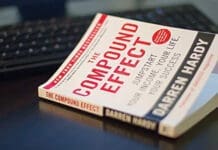By: Maurice Stouse
 An important part of everyone’s financial life is money in the bank. Having money in the bank has implications for your wealth and finances as well as peace of mind. Money in the bank is considered to be safe. It is federally insured up to $250k for each depositor. And it is liquid. You can get to it, without fluctuation in value or penalty. You can simply use your ATM card, write a check or go to your local branch if there is one and make a withdrawal. And today there are even more ways to access and move your cash and make payments. Many banks and many apps on your smartphone facilitate this. Convenience, simplicity, access. All good reasons for and benefits of money in the bank.
An important part of everyone’s financial life is money in the bank. Having money in the bank has implications for your wealth and finances as well as peace of mind. Money in the bank is considered to be safe. It is federally insured up to $250k for each depositor. And it is liquid. You can get to it, without fluctuation in value or penalty. You can simply use your ATM card, write a check or go to your local branch if there is one and make a withdrawal. And today there are even more ways to access and move your cash and make payments. Many banks and many apps on your smartphone facilitate this. Convenience, simplicity, access. All good reasons for and benefits of money in the bank.
Some people think that at today’s rates that money in the bank is a losing proposition. They argue it is better put to use in the stock or bond market or even in real estate. All of these could be sensible alternatives, but they do not provide that peace of mind of knowing that assets are in the bank, safe, and available. Many people, retirees in particular, live off their bank accounts and replenish them when needed or when pension or social security payments come in.
How much should you keep in cash or in the bank? A lot of people have as a rule of thumb that is anywhere from six to twelve months of expenses. Many of the investors with whom I work always want to have a least 12 months of expenses in the bank. Many also have a minimum amount they always want as a “floor” in their bank account. And banks might often offer higher rates of return for consistently higher balances. While many pay nothing at all, some pay a mere .01% – .30%, while others may be up to 1% or beyond and those are often dependent upon a number of factors.
And there are CDs, or certificates of deposit. While today’s rates certainly aren’t what they were in years past, they nonetheless often pay more than cash deposits and are included in the FDIC insurance of $250K. Investors and savers would do well to take advantage of the higher rates CDs can offer and perhaps employ a laddering strategy. A “ladder” of CDs that mature every three months or longer means investors can have money come due as each rung in the ladder is achieved. Thereby earning higher rates yet not giving up liquidity. Many investment and brokerage firms offer checking accounts and offer CD shopping services so that you have many banks and rates to choose from across the country.
Talk to a Raymond James Financial Advisor today about checking and savings options and also learn more about CDs that are available (through either Raymond James Bank or Raymond James & Associates). Or call your banker or your own advisor.
Maurice Stouse is a Financial Advisor with Raymond James and he resides in Grayton Beach. His office is located at Raymond & Associates, Inc., 34851 Emerald Coast Parkway, Suite 200, Destin, FL 32451. Raymond James advisors do not offer tax advice. Please see your tax professionals. Raymond James & Associates, member New York Stock Exchange/SIPC. Phone 850.460.1995. Email: Maurice.stouse@raymondjames.com.
Views expressed are the current opinion of the author and are subject to change without notice. Information provided is general in nature, and is not a complete statement of all information necessary for making an investment decision, and is not a recommendation or a solicitation to buy or sell any security. Past performance is not indicative of future results. There is no assurance these trends will continue or that forecasts will occur. Investing always involves risks and you may incur a profit or a loss. No investment strategy can guarantee success.






























































